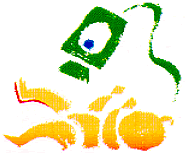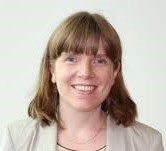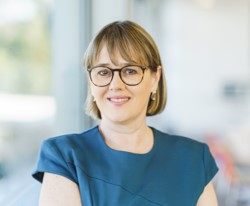General Movements Training 2022 - Brisbane 25-28 August
About General Movements Training 2022
Prechtl's Method of the Qualitative Assessment of General Movements
Cairns: 18 - 21 August 2022 - Advanced (Type B), Basic
Brisbane: 25 - 28 August 2022 - Advanced (Type A, Type B), Basic
 The Basic Course
The Basic Course
The Basic Course provides an introduction to Prechtl's Method on the Qualitative Assessment of General Movements in young infants. This new assessment method has shown its merit for the prenatal and postnatal evaluation of the integrity of the nervous system. Compelling evidence is now available that qualitative assessment of General Movements (GMs) at a very early age is the best predictor for cerebral palsy. This method has become a potent supplement to the traditional kind of neurological examination.
The Advanced Course (Type A)
The Advanced GMA course A is a three and a half day course for participants who are already engaged in applying Prechtl's Method on the Qualitative Assessment of General Movements. The Advanced Course Type A will provide additional intensive training in correct judgement. This training will deal with the details of the assessment, the proper terminology and technique, as well as with the application of individual developmental trajectories.
Main topics of lectures, demonstrations and exercises are:
• The ontogeny of spontaneous motor activity;
• Normal and abnormal GMs from birth to 20 weeks post-term;
• Practical instructions for recording and assessment of GMs;
• GMs and follow-up: individual developmental trajectories and their predictive power for later neurological impairments.
Note: this Advanced GMA course- type A does not focus on detailed training on the Motor Optimality Scoring (GMOS/MOS).
The Advanced Course (Type B)
This training will deal with the details of the assessment, the proper terminology and techniques, as well as with the application of individual developmental trajectories. The Advanced Course B will provide specific training on detailed scoring of both the Motor Optimality Score (MOS) during the fidgety period and General Movements Optimality Score (GMOS) during the writhing period. in correct judgement. Participants will be expected to bring some of their own videos.
Who should attend? Medical specialists, neonatologists, physiotherapists, occupational therapists, registered nurses and other professionals in the field of infant neurology. Participation in the Advanced Course is possible only for individuals who successfully passed a Basic Training Course held under the auspices of the GM-Trust.
The courses fulfil the standards specified by the GM-Trust (www.general-movements-trust.info).
Registration & Payment
Limited number of places available - registration fee includes workshop materials, morning tea, light lunch, and afternoon tea:
(Actual location of the trainings will be available closer to training dates)
| Location | Dates | Course | Registration inc GST |
| Cairns | Thursday 18 - Sunday 21 August | Basic | $1,650 |
| Cairns | Thursday 18 - Sunday 21 August | Advanced (Type B) | $1,650 |
| Brisbane | Thursday 25 - Sunday 28 August | Basic | $1,650 |
| Brisbane | Thursday 25 - Sunday 28 August | Advanced (Type A, or Type B) | $1,650 |
Course Instructors
 Prof. Arend Bos, MD; Advanced Course
Prof. Arend Bos, MD; Advanced Course
Arend (Arie) Bos is Professor in Pediatrics and Neonatology and head of the division Neonatology of the Beatrix Children’s Hospital, located at the University Medical Center Groningen, The Netherlands. His expertise and research focuses on neonatal brain function and development of children, particularly of those children who experience a difficult start at birth and need to be admitted to the neonatal intensive care unit (NICU). The aim of the neonatal team of doctors and nurses in Groningen is to improve the long-term outcome of the NICU children, by investigating potential risk factors in relation to various non-invasive methods to monitor neonatal brain function. He is member of the General Movements Trust, an international group of researchers, together with whom he developed a method to assess brain function in young infants from their spontaneous movements.
 A/Prof. Alicia Spittle, PhD; Basic Course
A/Prof. Alicia Spittle, PhD; Basic Course
Alicia is a paediatric physiotherapist and international leader in early detection of motor impairments and early intervention for infants at high risk of developmental impairments. She is Director of Paediatric Physiotherapy Research at the University of Melbourne and a National Health and Medical Research Council Career Development Fellow. She is a passionate researcher who leads the motor team within the Victorian Infant Brain Studies (VIBeS) group at Murdoch Childrens Research Institute, along with holding a clinical appointment at the Royal Women’s Hospital, Melbourne. She is the first Australian tutor of the General Movements Assessment and is leading a collaboration with an international team of experts to use innovative technology to improve access to early detection of cerebral palsy.
Dr Cathy Morgan, PhD; Basic Course
 Dr Cathy Morgan is a Physiotherapist with PhD in Biomedical Science and >30 years clinical and research experience in the field of Cerebral Palsy. As Senior Research Fellow at the Cerebral Palsy Alliance Research Institute, at the University of Sydney she leads the Early Detection and Early Intervention Programme. Dr Morgan is part of an internationally recognised team of researchers conducting clinical trials of novel interventions geared to preventing, curing and treating cerebral palsy, early diagnosis of CP, and knowledge translation across the pipeline from bench-to-bedside-to-policy.
Dr Cathy Morgan is a Physiotherapist with PhD in Biomedical Science and >30 years clinical and research experience in the field of Cerebral Palsy. As Senior Research Fellow at the Cerebral Palsy Alliance Research Institute, at the University of Sydney she leads the Early Detection and Early Intervention Programme. Dr Morgan is part of an internationally recognised team of researchers conducting clinical trials of novel interventions geared to preventing, curing and treating cerebral palsy, early diagnosis of CP, and knowledge translation across the pipeline from bench-to-bedside-to-policy.
For more question about the event, please email to auscpnetwork@uq.edu.au.
